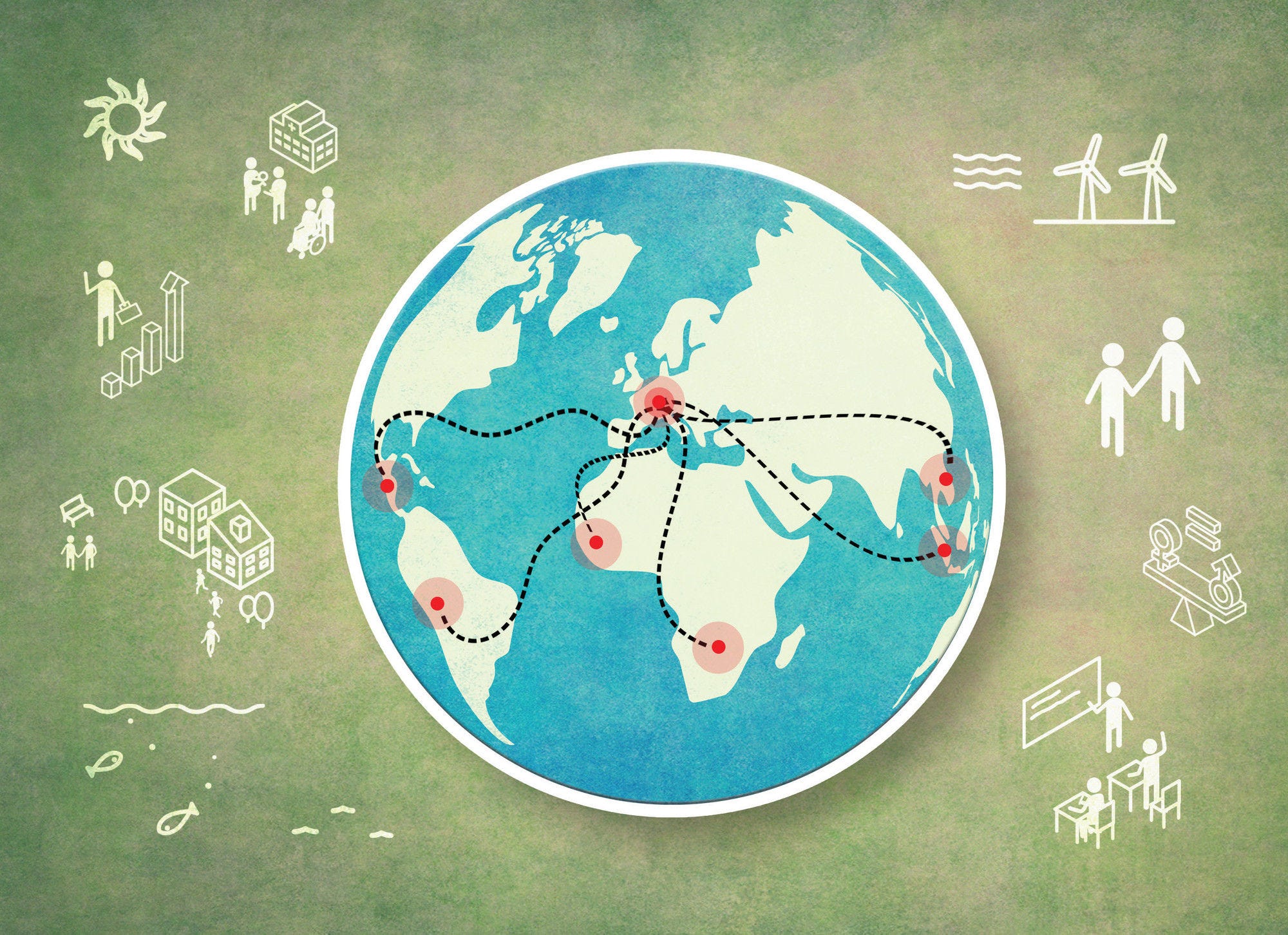Amidst growing efforts to localise global agendas, particularly the United Nations Sustainable Development Goals (SDGs), cities and regions are increasingly recognised as key development actors. Two dedicated goals on sustainable cities (SDG 11) and partnerships (SDG 17) emphasise the role that local and international partnerships play. In addition, the G20 Rome High-level Principles on city-to-city partnerships for localising the SDGs, adopted in 2021, stressed the importance of co-operation between subnational governments from developed and developing countries in their efforts to embrace global transformations and adapt to megatrends, notably to achieve low-carbon growth while delivering electricity, water, healthcare, education, security and other social services.
Although international aid remains overwhelmingly channelled through national governments, cities and regions are stepping up their engagement in international co-operation activities that allow for an exchange of experience and place-based solutions. Between 2015 and 2021, total volumes of decentralised development co-operation (DDC) increased by almost 40% (reaching USD 2 831 million in 2021) and accounted for 3.6% of total official development assistance (ODA) 2021 (up from 3.1% in 2016).
In this context, this OECD study Reshaping Decentralised Development Co-operation in Germany provides an in-depth national review of the largest DDC donor country among members of the OECD Development Assistance Committee (DAC). The case of Germany is a telling example of how cities and regions can collaborate with their peers in the Global South. German states and municipalities are active in more than half (76) of the 142 ODA-eligible countries and territories. In Germany, cross-border DDC disbursements (excluding in-donor tuition costs) more than doubled from EUR 25 million in 2014 to EUR 53 million in 2020. Germany has put in place a dedicated multi-level governance architecture with specific programmes and funding schemes to support both federal states and municipalities in strengthening their DDC strategies and to co-ordinate activities across levels of government.
This report assesses DDC policies, strategies, programmes and financing in Germany as well as related challenges, and offers concrete recommendations on how to address them together with an action plan for the short, medium and long terms. Stakeholders in Germany and peer policy makers from the municipality of Brasschaat in Flanders (Belgium), the Association of Flemish Cities and Municipalities (Belgium), the region of Flanders (Belgium), the province of Trento (Italy), the city of Madrid (Spain), the region of Catalunya (Spain), the Spanish national government, as well as the city of Toulouse (France) and the French national government shared experiences via the policy dialogue underlying this report. We are confident that this report will contribute to further harnessing the potential of DDC in Germany and provide inspiration for other governments around the world.

Jochen Steinhilber
Director General for Displacement Crisis Prevention and Civil Society Federal Ministry for Economic Co‑operation and Development, Germany

Lamia Kamal-Chaoui
Director
OECD Centre for Entrepreneurship, SMEs, Regions and Cities

Pilar Garrido
Director
Development Co-operation Directorate, OECD
